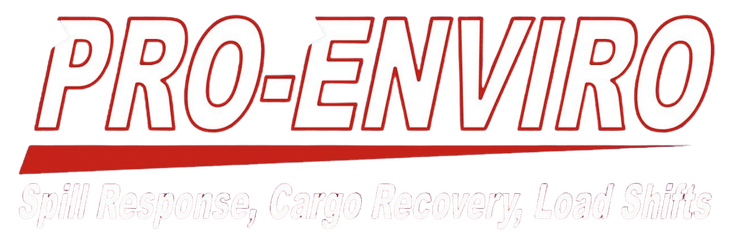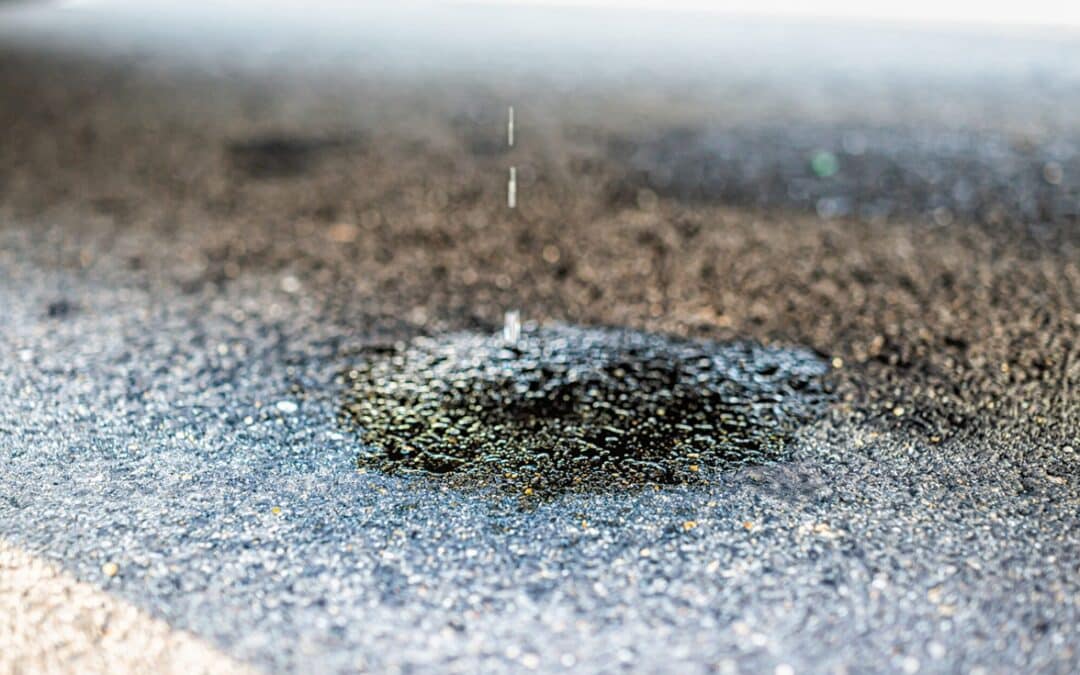Written by the Pro-Enviro Team – Serving the State of Washington
Spills don’t have to be big disasters to become serious environmental or legal problems. While Pro-Enviro spends a lot of time recovering major spills caused by commercial vehicles or road accidents, the small spills still need attention.
Pro-Enviro can help with small spills on private or public property. We’ll give you some examples of small spills that still require spill cleanup (by law), and what you can do about them when they happen.
What is Considered a Small Spill?
A small spill would be under 10 gallons, that only impacts the soil in the immediate area. In those cases, the spill and contaminated soil can be excavated and removed quickly. That stops it from spreading to nearby water or deeper in the ground.
However, if you’ve reported the spill and the Washington State Department of Ecology’s review show that the spill has reached, or could reach, water, groundwater, or other areas that pose a threat to the ecosystem, a more complex spill recovery is needed.
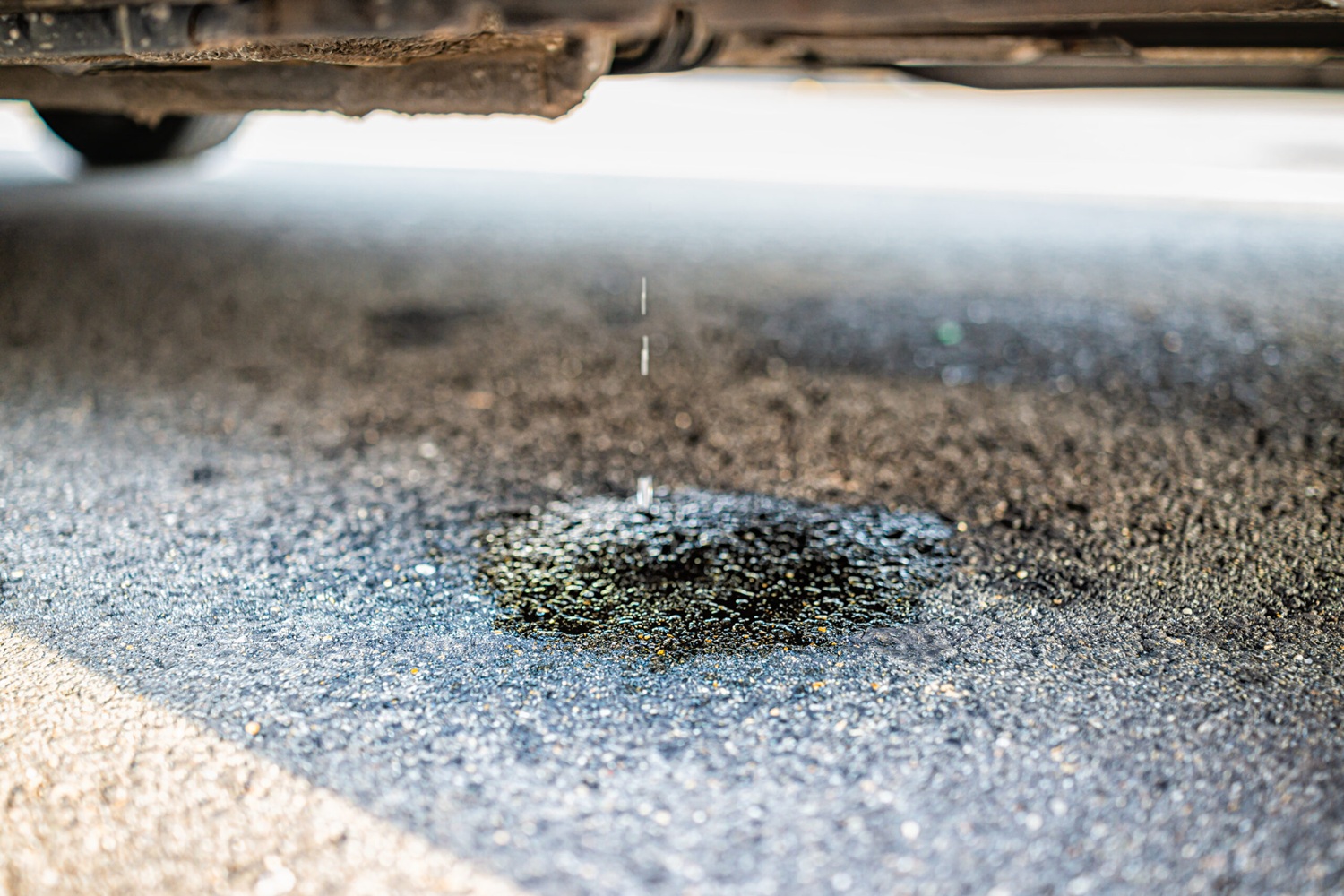
What Types of Spills Could Need Professional Spill Cleanup?
Not every spill is a significant ecological disaster or safety hazard, and smaller spills can often be handled with an at-home spill kit. However, many small skills can still potentially harm people, property, wildlife, waterways and the environment. That’s why Washington State has regulations and guidance for dealing with small spill cleanup, including fuel, oil, chemicals and other hazardous materials.
Here are some common small spills:
Gas and diesel spills: These spills can be leaks from your vehicle, lawn equipment, generators, tools and other household items. They can occur in the yard, parking lot, driveway or public property.
Oil spills: A few drops of oil from your vehicle on the driveway might not be a big deal, but if there’s a significant puddle, or several, that spill could require professional cleanup. That includes oil spilled in residential garages, parking lots, schools, driveways and other areas.
Chemical spills: Chemical spills that could harm the environment and require professional spill cleanup could include cleaners, solvents, or even chemicals used in a high school laboratory.
Equipment spills: Whether it’s the ride-on mower you use on your acreage or heavy machinery used on your farm, spills from leaking fuel, oil, coolant, or hydraulic fluid need spill cleanup.
Household hazardous materials: There are things we use around our homes that can pose a threat to the environment if spilled. These include paint, herbicide, pesticide, and other chemicals.
Even though these spills may be “small,” if they seep into soil, run toward storm drains, or pose a danger to people or pets, then professional cleanup is often the safer, smarter route.
When Should I Report a Small Spill?
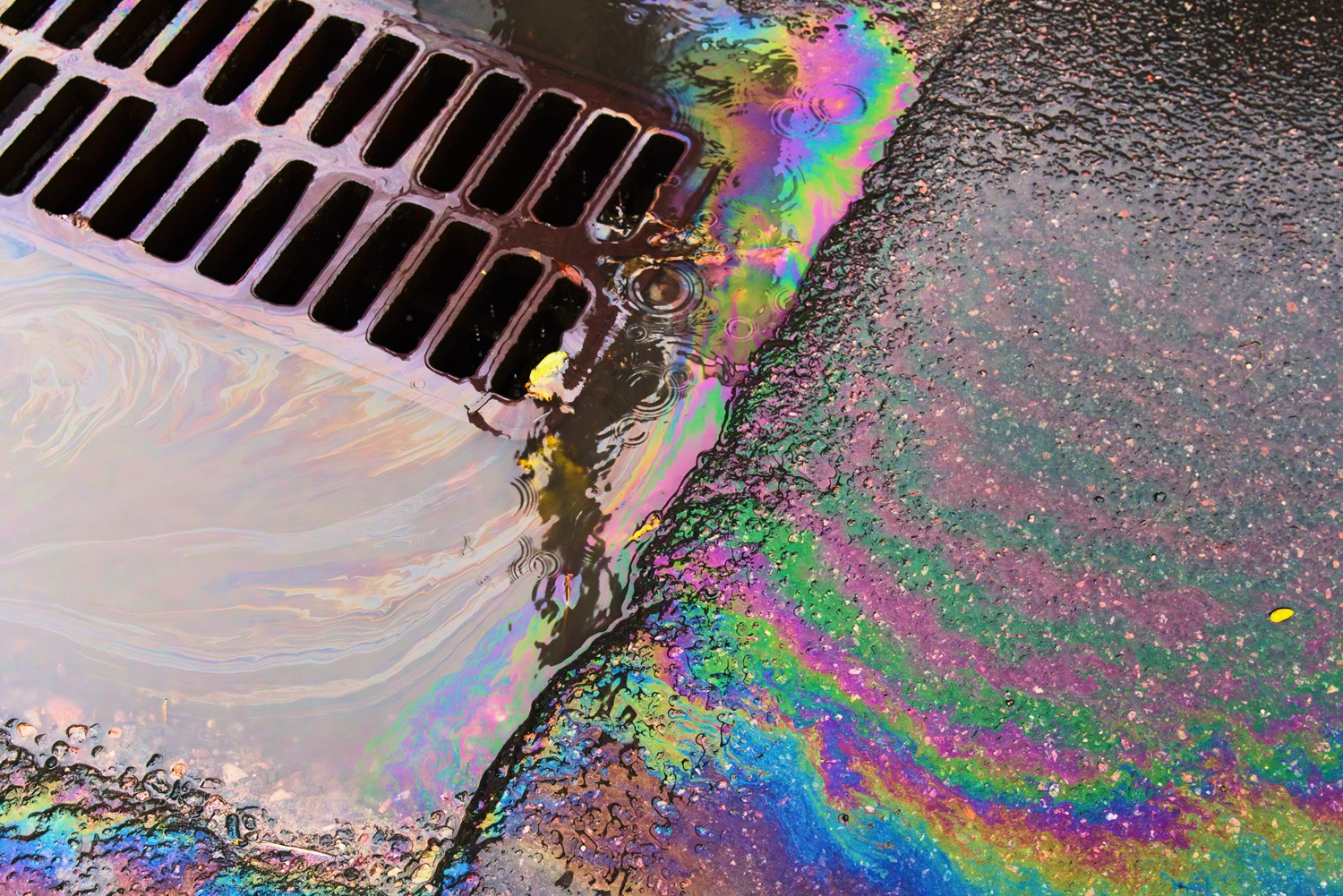
Washington’s regulations and guidance make it clear: even small oil and fuel spills are not always optional to report or clean up. If you are responsible for a spill, call both of these agencies:
-
- Washington Emergency Management Division 1-800-258-5990
- National Response Center 1-800-424-8802
Here are the reporting requirements, read the Washington State Egology “Report a Spill” page. It shares who to call for common types of spills.
There can be penalties for failing to report or properly clean up spills that pose risks to human health or the environment. If you’re not sure if your spill requires investigation and professional spill cleanup, call Pro-Enviro. We can help you determine the next steps.
How Pro-Enviro Helps with Spill Cleanup
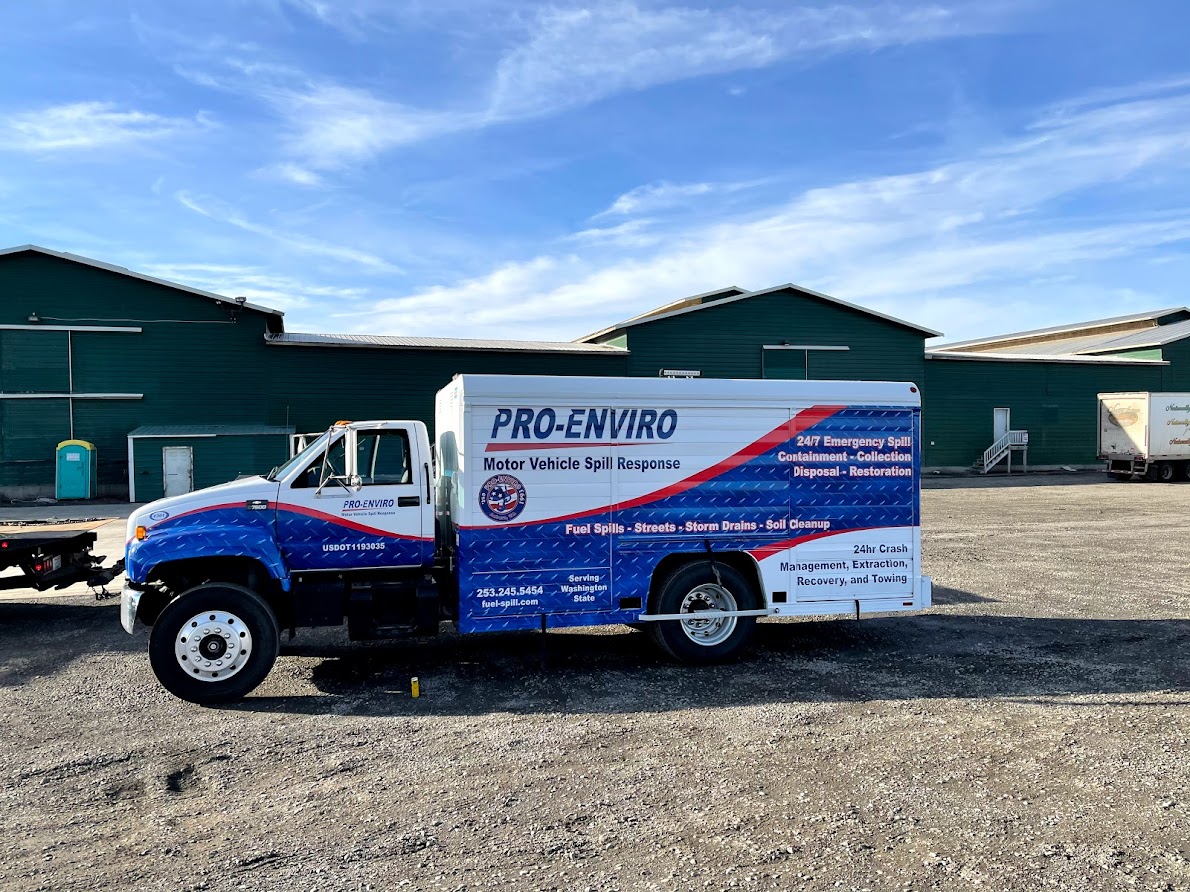
If you’ve reported your spill, it’s likely a spill recovery professional like Pro-Enviro will be called to the scene. Once we arrive, we’ll do an on-site assessment to determine the location, type, size and risk of the spill. Then, we put together a spill recovery plan.
Depending on the spill situation, we’ll ensure it’s contained before carrying out the cleanup. That cleanup could include using absorbents, removing soil, neutralizing chemicals and sending contaminated soil to the lab to ensure we’ve dug enough of it out. Then, we’ll fill the area with new earth or road crush.
Pro-Enviro will dispose of the contaminated materials in compliance with federal and state regulations and ensure the job is compliant with the Department of Ecology’s requirements.
If something like a fuel leak, oil spill, or chemical drip is beyond what a home spill kit can handle, or if you’re unsure, call us! Professional spill response will help you avoid risk, legal penalties and long-term costs.
Contact Pro-Enviro today!
